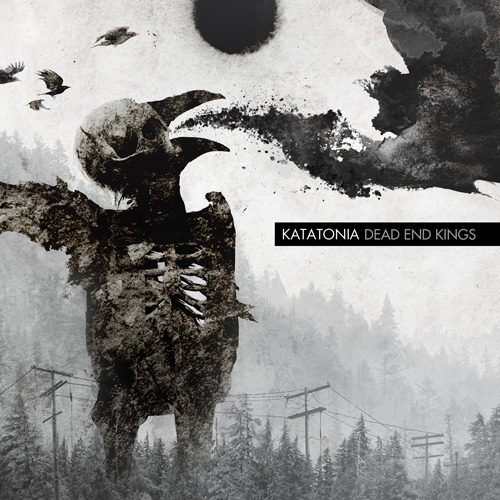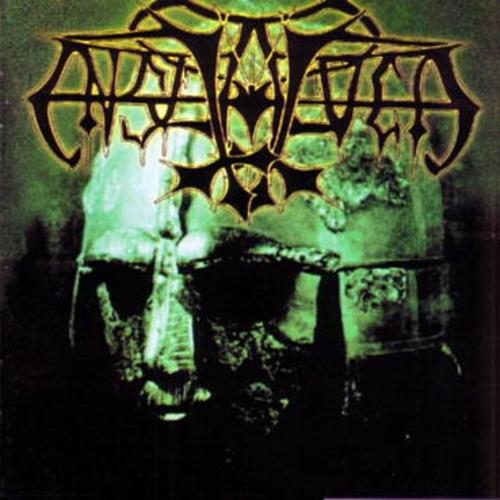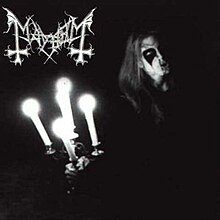If there’s anything about Krallice that fits squarely with
black metal tradition, it’s the tendency of their music to be overshadowed by
the lore surrounding them. Maybe Colin Marston never stabbed anybody, but you’d
be forgiven for thinking as much in light of the controversy surrounding the
band’s black and tech metal hybrid.
In truth, the debate about the band is neither surprising
nor unwarranted. They garnered rapid and emphatic praise from journalists who
were rightfully excited about Krallice’s musical concept and instrumental role
in an unfolding paradigm. But some
could argue that this praise slightly outpaced the band’s compositional
ability; a perspective highly dependent on the listener’s context in black
metal, tech metal, even death metal. And black metal purists tended to be less
impressed by the supposed innovations that Krallice represented. In much the
same way that Napalm Death didn’t really
invent grind, the purists are usually right. But they’re never vindicated, so
it sucks to be one.
Great music never lives in the middle of the road, and
wisely Krallice has responded to any deficiencies in their songs by dispensing
with conventional attempts to write them. On Years Past Matter you will find no song titles and no lyrics – this
is Krallice at their most organic, meandering, and abstract. Previous attempts
at verse-chorus formats and vocal hooks on Diotima served
only to drive home how ill-at-ease the band was with the format, and the
segmented, riff based structures of their previous work often stifled the
otherwise brilliant musical interplay by compartmentalizing it into discrete
chunks.
It may seem almost paradoxical that Krallice has achieved
their most memorable and succinct set of songs by making their music more free flowing and extended. But
metal has never been a genre that’s harmed by 10-20 minute epics – it’s the
introduction of too many ideas that makes a song seem longwinded. On Years Past Matter, every transition is
so seamless that for the first time in their career, Krallice’s songs seem
shorter than they are.
Possibly a byproduct of the organic approach to composition,
Years Past Matter is also Krallice at
their most dynamic. There’s the infectious grooves of track 3, the gentle
acoustic theme of 4 devolving into a gorgeous alien soundscape straight out
of Ocrilim, the droning noise of 5 and the technical explosion of the
progressive closing track. These sonic landmarks do wonders for the flow of the
album, and sustain the interspersed tremolo-picking flurries which have always
been a trademark of the band. My first thought on hearing all this was that the
band had largely dropped the pretense of being a black metal band. But after
listening further, I have found that sections of the album strike me as the closest to black metal the band has ever sounded. Even though these sections still
aren’t that intense and still aren’t that grim, the musical impact derives from
the contrast.
Musically, the band sounds better than they ever have.
Marston and Barr’s fretwork has never been in question, but here Weinstein and
McMaster really come into their own. If there was one weakness to the band
before, it was a slight identity crisis between the black metal and technical
parts of their sound. No one is more integral to reconciling that divide than
Weinstein, since an underperforming drummer can be the Achilles' heel of a technical metal band, but drone and black
metal influences demand a more restrained performance. This time around,
Weinstein knows exactly when to play a minimalist blast or double bass groove, and exactly when to ratchet up to a more hyperactive attack. As for McMaster,
he continues to develop as a strong third voice in the arrangements,
dexterously supplying everything from fuzzy rumbling lines, to dynamic
technical runs, to subtle and surprising harmonizations.
A couple other nice touches to this album:
For one, the album layout and artwork is fantastic. It
mirrors the music perfectly: reminiscent of the spirit of black metal in
certain ways, but modern, abstract, and full of color.
Secondly, on the album there are no song titles at all, but
online they are titled with a string of I’s of sufficient number that it’s
impossible to tell which song is which unless they are all listed in order. At
first I thought this was some obnoxious attempt to be kvlt, but now I’m
interpreting it as a statement about listening to the album as a whole. If a
song comes up on your music player, it’s effectively impossible to tell which
track it is – only that it’s from Years
Past Matter. Like the artwork, this titling convention mirrors the music:
each song requires the context of the others.
Often the darlings of Pitchfork, often the scorn of Metal
Archives, Krallice has responded to all the petty dogmatic outrage and the
brainless trendy followers in the best possible way – by eliminating virtually
all text from their album and letting the music speak. And speak it does.












.jpg)